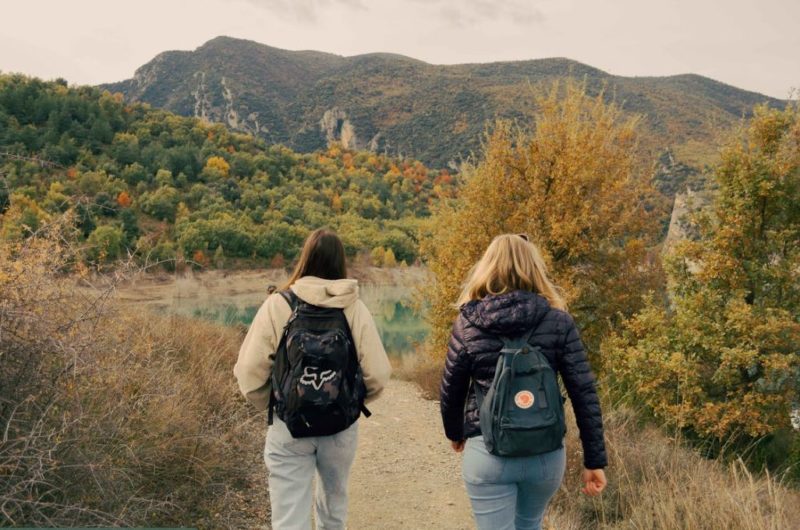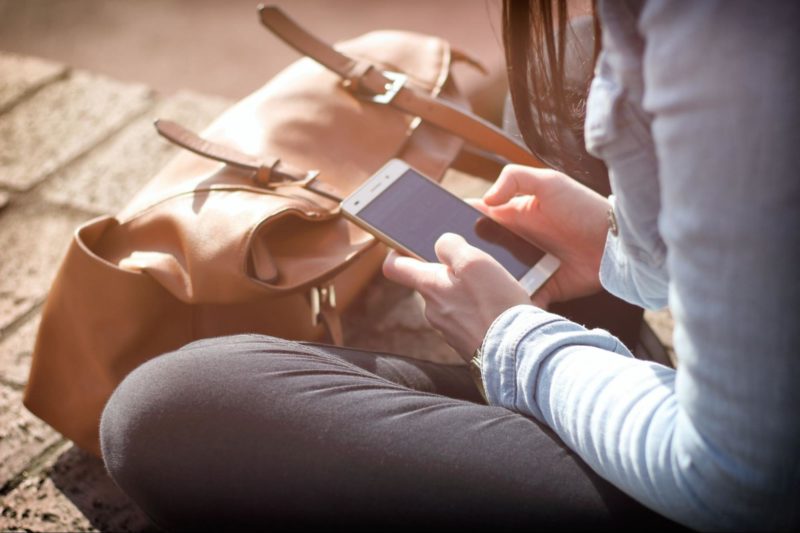Traveling alone as a female can be an empowering and culturally immersive experience. From the confidence boost to immersing in the local culture, traveling solo as a female can be one of the most rewarding and life-changing experiences.
With every unpredictable experience and uncertainty comes risks. Risks regarding one’s safety and the current state of the host country can be alarming to solo and non-solo travelers.
For this reason, female travelers need to be aware of the different safety tactics they can use to have the best possible experience.
What Safety Tips Should I Implement?
1. Research Everything
Research is everything. Research the location and the crime rate in the region. Know the best forms of transportation and the most reliable options. Plan to arrive during the day so you avoid traveling at night in unfamiliar and unknown areas.

Check for the types of common illnesses in the region to ensure that you have the proper vaccinations for the disease. With new locations come different species and infections. For example, many countries have high cases of dengue or malaria, which poses a threat to travelers.
Researching the acceptable and appropriate dress code in the region is also a great safety precaution. In Asian and Middle-Eastern countries especially, temples and other places of worship require a certain dress code for all visitors. Being conscious of the country’s different practices eliminates unwanted attention and potential danger to the traveler.
2. Notify Someone of Your Travel Plans
Make sure someone back home, your host, or the front desk in your hostel knows about your travel plans. Give someone your itinerary and tell them you will be checking in daily. You can even go as far as sharing your location via your phone. Sharing your location will help locate your phone and you in the event of an emergency.
3. Photocopy Documents
Other than ensuring you have a hardcopy of all your essential documents, photocopy or scan documents and store them within a database you can access worldwide. Some travelers email their essential documents to themselves so they can access them anywhere with Wi-Fi.

Avoid carrying original documents like your passport unless necessary on your trip. Having original documents puts another thing on your mind and puts you at risk of identity theft.
4. Blend in With The Locals
Blending in can be one of the safest things to do when the host country’s customs differ significantly from yours. Sticking out puts you at risk of undesired activity such as theft or harassment.
Many countries have unspoken dress codes, especially in other continents such as Asia or the Middle East. Some of the countries in these regions may require women to be more covered up and can even go as far as prohibiting entry to the premises if inappropriately dressed.
To ensure that you are not limited by your wardrobe, research the cultural norms and acceptable attire of your destination.
5. Avoid Revealing Personal Information
Avoid telling strangers that you are traveling solo. Many scammers target travelers due to their lack of connections and the language barrier in the country.

Make yourself familiar with the language basics. When being approached by mildly suspicious or ‘overly friendly’ locals, if you feel mildly unsafe, let them know you are meeting a friend in the area. This helps put yourself at lower risk and remain safe.
6. Carry Safety Devices
Items such as pepper spray, keychain alarms, and other safety devices could save you when traveling alone day and night.
A keychain alarm might be your best option for flight travel as it adheres to all TSA guidelines. This device is discreet and attaches to any lanyard; all you have to do is pull it to sound the alarm.
Check with your airlines and TSA for additional information on how to transport these types of items. As long as pepper spray containers are smaller than 4 ounces, you should be clear to include it in your checked luggage!
7. Beware Pushy Guides And Currency Exchangers
Areas bustling with tourism are also bustling with scams. Before traveling, become familiar with the currency in the host country. Many currency exchangers take advantage of foreigners and give them improper change. Count your money before leaving the building.

Some currency exchangers will also hand back old, scribbled on or ripped notes. In certain African countries, older bills can be rejected by vendors. Make sure the bills are from the past 12 years to ensure their validity.
8. Get Travel Insurance
Travel insurance makes sure that you are covered in the event of an emergency abroad. Whoever plans on purchasing travel insurance should do this before departure as most insurance companies will not issue insurance to an individual already abroad.
9. Get a Travel Bag and Keep Your Money Safe
Travel bags with theft-proof technology are more sturdy and can prevent someone from slashing your bag. These bags can also convert from handbags to backpacks, making it easy to switch your form of transport when in dangerous areas.
You should also avoid stashing all of your money in one location. Keep your money in obscure and different locations so that you always have some cash if one of your bags is stolen.
RFID wallets can also be a great investment for individuals who prefer to use credit cards while abroad. RFID wallets and bags prevent credit card scanning theft from passing individuals.
Notify your bank of travel. That way, you avoid a frozen card when spending abroad. Letting your bank know your travel plans is vital information and provides supporting evidence if your credit cards go missing or are stolen.
10. Be Alert When Transiting Places
Many safety issues and crimes arise when transporting yourself and your belongings. Avoid leaving your items unattended, remove all name tags from your luggage, and lock your belongings.
Leaving items unattended or getting distracted puts you at risk of theft. Keep all items within your reach and line of sight when on public transportation. Someone could steal something and take it with them during your next stop.
Remove all name tags or baggage tags from your luggage once you arrive at your destination. Many individuals outside airports are known to read luggage tags and pretend to pick up the travelers arriving in the country.
Locking your belongings deters individuals from wanting to steal your items. Not only is it inconvenient for both of you, but locking items means they will be extra tedious to steal.
How Do I Stay Safe in Transit?
Train stations can be dangerous when unattended or during non-rush hours. Even during the busiest of hours, these places are never safe.

Avoid standing on the platform if there are little to no people in sight. Criminals usually take advantage of empty platforms to steal from people waiting for the train. Instead, wait at the station or near a staff member.
Avoid standing too close to the track. There have been reports about people falling or getting pushed onto tracks. Avoid standing close to the track when you are not boarding.
Many street sellers conduct business near train stations, bus stops, and tourist attractions. Be aware of the scams and avoid any suspicious activity or transactions.
Many trains offer women-only trains if you are traveling in Asia or South America. Research if there are women-only trains near you if that makes you more comfortable.
Avoid empty train carriages and move to a more populated carriage. While this may sound inconvenient, empty carriages are prone to more suspicious activity.
Conclusion
Solo female travel continues to grow in popularity every day. If you are an aspiring solo female traveler or a current traveler looking to stay safe, becoming familiar with your destination and keeping track of your items is the best thing you can do. Remember not to forget these safety tips, and happy traveling!

No Comments